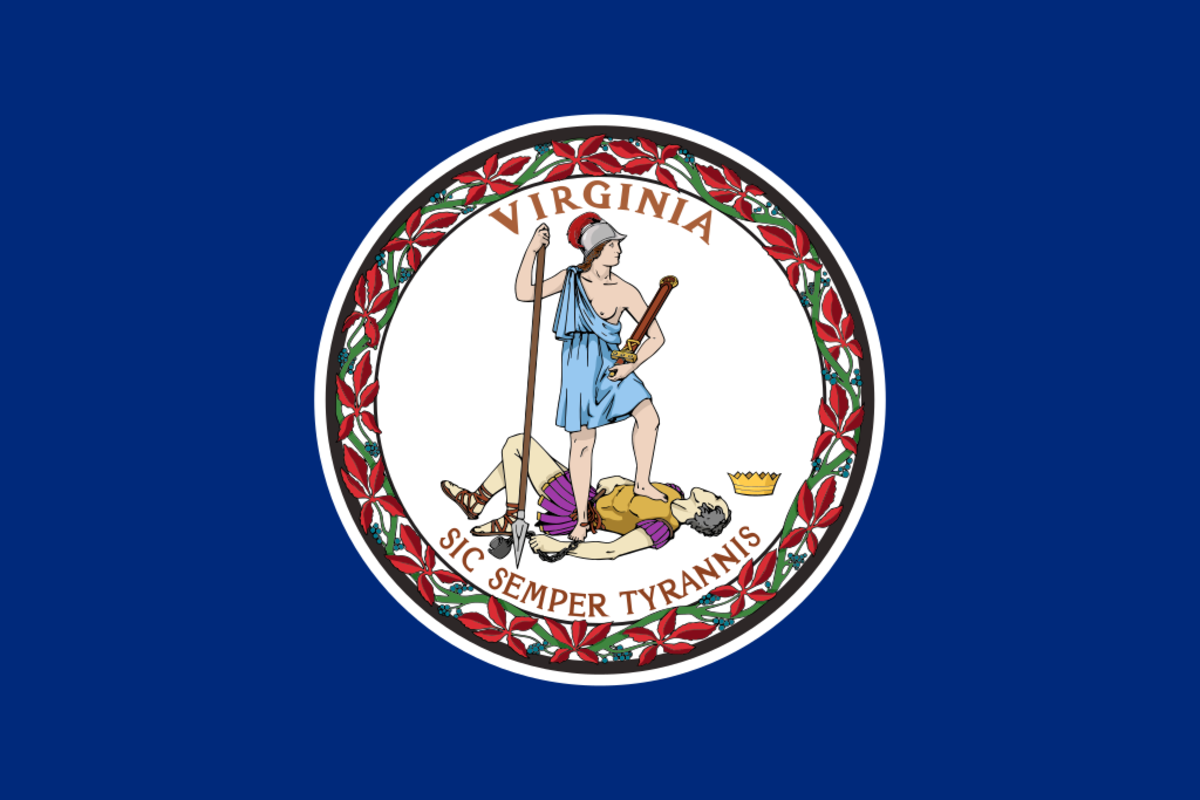Virginia Medical Malpractice Laws

In 2023, the estate of Robyn Stead won a $2.23 million verdict in a medical malpractice case. Stead passed away following surgery at DePaul Hospital in Norfolk, VA. The 58-year-old woman had a colon resection procedure after expressing discomfort in her abdomen. She recovered without incident at first, but four days later, a sudden rise in her white blood cell count indicated that she had contracted another illness.
In spite of this, the doctors neglected to write an order for antibiotics or obtain an abdominal CT scan that would have identified an intestinal leak. The patient died of septic shock from multiple organ failure as a result of this untreated consequence.
In Virginia, there have been several incidents of medical malpractice, like the one involving Robyn Stead. The U.S. Department of Health and Human Services states that from January 2022 to September 2023, there were 289 reports of medical malpractice payments in Virginia, which amounted to $131.08 million in payouts.
Compared to other injury cases, medical malpractice tends to be more complicated and can take numerous forms. This article will give a thorough overview of medical malpractice laws and regulations in Virginia to assist victims and their loved ones in understanding the elements needed to prove their case and the legal choices that they have to obtain justice.
What Qualifies as Medical Malpractice in Virginia?
Medical malpractice in Virginia pertains to any action by a healthcare provider that causes personal injury or wrongful death to a patient because it falls short of the standard level of care expected in the medical profession. The following are some examples of medical malpractice that are frequently seen:
Medication errors: Mistakes of a medical professional when providing medications to patients, such as incorrect drug prescriptions, dosages, or methods of administration.
Surgical errors: Careless actions taken by a healthcare provider before, during, and after surgery. These include piercing organs or blood vessels, leaving surgical instruments within the patient, or performing the procedure on the incorrect body part.
Birth injuries: Errors of a health practitioner during the prenatal treatment or delivery of a child. These mistakes usually lead to various birth injuries, like cerebral palsy, Erb’s palsy, fractured bones, and brain or nerve damage.
Misdiagnosis: The incapacity of a medical professional to correctly identify the ailments of the patients or the inability of a medical professional to set up the appropriate medical tests.
Nursing home abuse of neglect: The failure of a doctor or nurse to give proper care and supervision to senior nursing home residents.
In Virginia, the terms "medical malpractice" and "medical negligence" are interchangeable, so the idea discussed in one context also applies to the other. There are several actions you or somebody you know can take to safeguard your legal rights and health in the event of medical malpractice or negligence. These actions include formally complaining to the healthcare professional or contacting a medical malpractice lawyer.
Who Can You Sue for Medical Malpractice in Virginia?
In Virginia, medical malpractice cases may be brought against the following healthcare providers:
Doctors.
Assistants of physicians.
Nurses.
Dentists.
Emergency medical technicians.
Anesthesiologists.
Podiatrists.
Obstetricians.
Opticians.
Chiropractors.
Physical therapists and their aides.
Various healthcare facilities, such as outpatient clinics, assisted living communities, and hospitals.
You can also file a medical malpractice lawsuit against multiple medical professionals simultaneously. This would be possible if you could prove that you suffered harm because they treated you in a way that was less than what a fellow physician in Virginia, with comparable training and experience, would have provided in the same situation.
Exemptions
Sovereign immunity law protects healthcare providers working for the Commonwealth of Virginia against medical malpractice lawsuits. This means that a doctor may be spared legal action if they work in pursuit of the Commonwealth’s goals and interests and perform their duty with care.
However, the courts can rule that a physician who is working with the Commonwealth will not be released from responsibility if the harm they have caused to a patient is severe or extreme.
Medical Malpractice Liability Insurance Requirements
Medical malpractice insurance covers healthcare providers in cases where the patient alleges that they have provided treatment and services incompetently or negligently.
Medical malpractice insurance is not mandatory for practicing physicians in Virginia, according to state law. But, in order to receive credentialing, several hospitals, outpatient surgery clinics, and healthcare centers in Virginia require that professionals carry medical malpractice insurance with liability limits that either meet or exceed the damage threshold. Every year, the cap on medical malpractice damages in Virginia rises.
The Virginia General Assembly has mandated that the cap limits rise in accordance with the timeline listed below:
$2.60 million from July 1, 2023 to June 30, 2024.
$2.65 million from July 1, 2024 to June 30, 2025.
$2.70 million from July 1, 2025 to June 30, 2026.
$2.75 million from July 1, 2026 to June 30, 2027.
$2.80 million from July 1, 2027 to June 30, 2028.
$2.85 million from July 1, 2028 to June 30, 2029.
$2.90 million from July 1, 2029 to June 30, 2030.
$2.95 million from July 1, 2030 to June 30, 2031.
$3 million from July 1, 2031 onward.
What Is the Statute of Limitations in Virginia for Medical Malpractice Cases?
A state law known as the “statute of limitations” establishes a time restriction within which a plaintiff can bring a lawsuit following an injury or loss. The Code of Virginia § 8.01-243 states that a medical malpractice case must be filed within two years of when the damage occurred. This legal timeframe, however, changes based on the circumstances.
If the medical malpractice case involves a failure to identify a malignant tumor or specific types of cancer, one year is added to the two-year deadline for initiating the lawsuit. This extra time is granted once the plaintiff is informed of the right diagnosis by a healthcare professional.
If the injury is not discovered within two years due to concealment, fraud, or intentional misrepresentation, the time limit for filing will be reduced to one year, beginning from the time the injury was discovered or should have been discovered. The same deadline applies for cases involving a foreign object left inside a patient.
Statute of Repose
Virginia also has a “statute of repose,” which prohibits the filing of medical malpractice cases after 10 years from the date of the misconduct. The only exceptions to this statute are situations in which the patient was younger than 18 and when the patient had an impairment that was not remedied within 10 years of the underlying negligence.
What Do You Need to Prove in a Virginia Medical Malpractice Case?
To show the healthcare provider’s negligence in a medical malpractice case in Virginia and obtain compensation of any kind, you must provide evidence for the following elements:
You had a patient-doctor relationship with the defendant, meaning that the healthcare provider owed you a duty of care.
The medical professional violated their duty by not providing you with the standard level of care.
You suffered direct harm or your medical condition got worse as a result of the duty of care violation.
The injury caused you serious losses and damages.
An expert testimony is often utilized in medical malpractice cases in Virginia to demonstrate the standard level of care that applies in a particular situation, how the healthcare provider violated that standard level of care, and how the violation directly resulted in the patient’s injuries. However, bear in mind that Virginia has strict rules when it comes to qualified expert witnesses in the medical profession. The following are some of those rules:
When suitably qualified, a chiropractor may provide expert testimony in a court of law regarding the cause, diagnosis, prognosis, course of treatment, and degree of disability of the chiropractic practice.
If appropriately qualified, a nurse practitioner or physician assistant may provide expert testimony in a court of law regarding the cause, diagnosis, prognosis, course of treatment, and degree of disability while acting within the bounds of their authorized duties. However, a nurse practitioner or physician assistant is not allowed to testify as an expert witness for or against:
A defendant in a medical malpractice case regarding causation.
An osteopath or a doctor of medicine regarding the accepted standard of care.
If a doctor or osteopathic physician is an accused party in a medical malpractice case or review panel, a podiatrist shall not be allowed to testify as an expert witness in opposition to the defendant.
For a medical malpractice case in Virginia, you might also need to submit an affidavit of merit, also known as a certificate of merit, in addition to expert testimony. If you fail to provide an affidavit of merit, your lawsuit will probably be dismissed.
On the other hand, if you claim that your medical malpractice lawsuit does not need any expert testimony because the alleged misconduct clearly falls within the judge’s common expertise and knowledge, then this certification may not be required.
How Much Can You Sue for Medical Malpractice in Virginia?
The amount of settlement you can anticipate in a Virginia medical malpractice case will vary based on different factors, including:
The severity of injuries.
The total amount of losses.
The reliability of evidence at hand.
The intricacy of the case.
The jurisdiction.
The doctor’s standing and their demeanor during the trial.
The lawyer’s level of expertise.
You can get help from a medical malpractice attorney in determining the amount of compensation you may be eligible to claim.
Types of Damages
In a medical malpractice lawsuit in Virginia, you may be able to get the following kinds of damages:
Economic Damages
These are the tangible financial losses resulting from an unlawful injury.
Medical costs, lost income potential, and missed work time are some examples of economic losses.
Non-economic Damages
These refer to intangible losses suffered by the victim.
Pain and suffering, disfigurement, psychological distress, loss of companionship, loss of consortium, and reduced quality of life are categorized under non-economic losses.
Punitive Damages
The court awards these damages when it determines that the parties responsible for the plaintiff’s injuries behaved dishonestly, carelessly, or fraudulently.
The maximum amount of punitive damages that can be awarded to a plaintiff in Virginia is $350,000.
Negligence System
Virginia adheres to the strict contributory negligence doctrine. A plaintiff is completely prohibited from obtaining any compensation in a medical malpractice claim if their own careless action contributed to the injury they have suffered. Even if the court determines that the plaintiff is only 5% to blame for their injuries, the plaintiff will still not be eligible for any compensation at all.
Methods of Obtaining Compensation
Reaching a settlement is one of the ways to get compensation in a Virginia medical malpractice case. The plaintiffs and their lawyers have the right to assess the fairness of the settlement amount the defense has offered. The matter will move through the stages of litigation if the suggested settlement is deemed unfair or if the parties are unable to reach a consensus on the amount.
When a patient files a claim through the appropriate judicial system in Virginia, a medical malpractice lawsuit is started. The matter will be sent to the District Court upon initial filing. If an appeal is filed in the District Court, the Supreme Court of Virginia may have jurisdiction over the matter.
How Much Does It Cost to Pursue a Medical Malpractice Case in Virginia?
The costs associated with bringing a medical malpractice case in Virginia vary based on a number of factors, including:
Attorney’s Fees
Most medical malpractice attorneys in Virginia work on a contingency fee arrangement. Under this payment plan, lawyers receive no compensation unless they obtain a financial settlement or award in court.
33.33% of the plaintiff’s award is the most typical contingency fee.
Expert Witness Costs
An expert witness typically charges $582 per hour for deposition testimony and $622 per hour for courtroom testimony.
Filing Fee
The court usually charges a filing fee of $100 to $500 in cases involving medical malpractice.
Discovery Expenses
After the plaintiff submits their claim and the defendant files their response, the “discovery” phase starts, where both parties can get pertinent information about the cases.
The associated costs at this stage include expert reports, depositions, interrogatories, requests for admissions, and requests for disclosure.
Resources for Medical Malpractice Victims in Virginia
If you or your loved one has been the victim of medical malpractice in Virginia, you can use the following legal resources to gain assistance in seeking justice and compensation for your injuries. These pro bono service providers carry malpractice insurance for the protection of the volunteer attorney.
Legal Services of Northern Virginia
The Legal Services of Northern Virginia is a municipal legal assistance program for people who cannot afford to hire private counsel. LSNV offers free civil legal services in collaboration with private bar pro bono volunteer attorneys and paralegals. In addition, staff and volunteers offer community legal education, advocacy before local and state government bodies, brief services, and representation in administrative proceedings.
Contact Information
Phone Number: 703-504-9153
Address: 10700 Page Ave., Suite 100, Fairfax, VA 22030
The Pro Bono Clearinghouse
The Pro Bono Clearinghouse, a program of the Greater Richmond Bar Foundation, connects experienced volunteer lawyers to nonprofit organizations that are in need of legal counsel. It assists with the following practice areas:
Trademarks and copyrights.
Real estate matters.
Employment and labor law.
Mergers and acquisitions.
Contract review and drafting.
Taxes and charitable giving.
Evaluation of operational guidelines and practices.
Amendment, review, and governance of articles or bylaws of an incorporation.
Contact Information
Phone Number: 804-780-2600
Email: info@grbf.org
Mail: 901 E. Cary St., Second Floor, P.O. Box 3954, Richmond, VA 23235
Whitman-Walker Health Legal Services Program
In the D.C. metropolitan region, the Whitman-Walker Health Legal Services Program provides free legal services to the LGBT and HIV/AIDS communities on issues pertaining to healthcare access. The program offers support with problems related to insurance, public benefits like Medicare and Medicaid, medical debt, immigration, estate planning, discrimination, and elder or transgender rights.
Contact Information
Phone Number: 202-939-7627
Email: lbrubaker@whitman-walker.org
Address: 1701 14th St. NW, Washington, DC 20009
Northern Virginia Pro Bono Law Center
The Northern Virginia Pro Bono Law Center gives civil legal services to low-income and impoverished individuals, as well as charity organizations. It offers chances for pro bono work in various legal fields, including life planning, housing, family, consumer, and employment law. In addition, it facilitates several legal programs, such as Nonprofit Legal Support, Neighborhood Outreach, Family Legal Assistance Project, Uncontested Divorce representation, Wills on Wheels, and Community Economic Development Project. The Fairfax Bar Association and the Fairfax Law Foundation provide support for these initiatives.
Contact Information
Phone Number: 703-246-2740
Email: fba@fairfaxbar.org
Fax: 703-273-1274
Address: 4110 Chain Bridge Road, Suite 216, Fairfax, VA 22030
Expertise.com StaffAuthor
Step into the world of Expertise.com, your go-to hub for credible insights. We don't take accuracy lightly around here. Our squad of expert reviewers, each a maestro in their field, has given the green light to every single article you'll find. From rigorous fact-checking to meticulous evaluations of service providers, we've got it all covered. So feel free to dive in and explore. The information you'll uncover has been stamped with the seal of approval by our top-notch experts.




